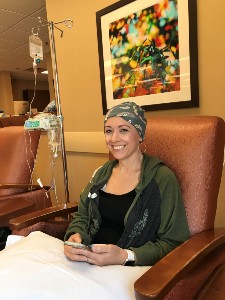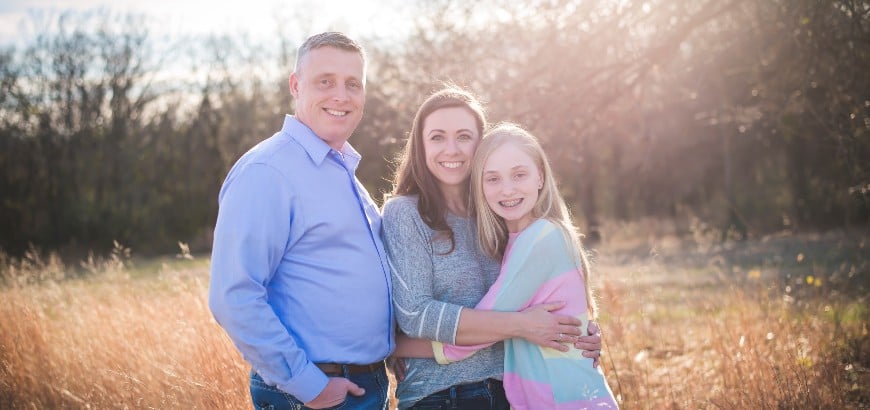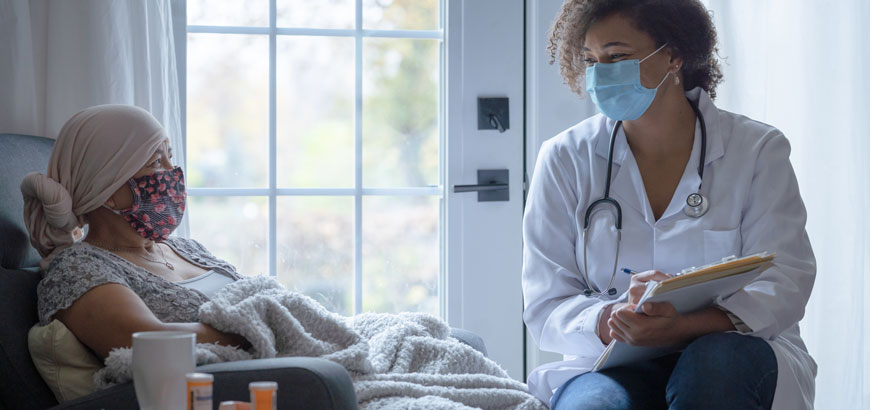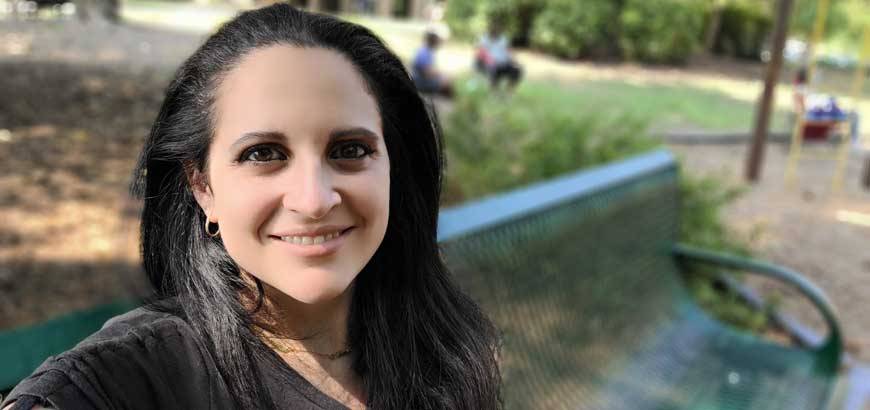Read time: 5 minutes
“I am very concerned.”
With those four words from a radiologist in February 2019, Brandy Hulsey, senior director of corporate accounts payable at McKesson, embarked on a journey no one ever wants to take. Based on a routine mammogram, Brandy soon learned that she had a 7.5-centimeter malignant tumor in her left breast, which had also spread to the axillary lymph nodes under her arm. Originally diagnosed as stage II cancer, it was eventually classified as stage IIIC, but her doctors approached it like they would the most aggressive stage IV to prevent it from metastasizing.
Treatment involved biopsies, scans, five months of chemotherapy, a double mastectomy, two months of daily radiation, and breast reconstruction surgery. Yet through it all, she has remained steadfastly upbeat.
“I’m an eternal optimist,” Brandy says. “As long as I have a plan, I’m good to go. But some of those days of chemo were very challenging.”
Fortuitously, Brandy was sent to Texas Oncology, part of The US Oncology Network (“The Network”), which is supported by McKesson.
“I’ve worked with The Network for years, so I understood the importance in the care they provide. But actually seeing it from the other side, as a patient, was remarkable,” she says. “My nurses were always on top of everything. They truly care about their patients, and I was comforted by the compassion and top-quality care I was given. They treated me and everyone in the clinic like family.”
One of the three chemotherapy therapies she endured deeply tested her resolve.

“The ‘Red Devil’ is a brutal drug that comes in big red syringes,” she recalls. “I took it every other week for two months. It creates terrible side effects, and I suffered through every one of them. I remember saying I wasn’t going back after the third treatment. But my husband was supportive, and I got through all four rounds. Fortunately, it worked.”
As she focused on beating cancer, Brandy was also committed to keeping the corporate shared services bills paid at McKesson, where she’s spent her entire career. She actually got the call about her diagnosis in the middle of a meeting.
“My boss was the first person I told, and he was so supportive,” she says. “He asked how he could help and told me to send him my meetings and upcoming work, so I didn’t have to worry about it. There are so many medical appointments – especially when you’re first diagnosed. During treatments I had to work intermittently. After surgery I was out for weeks. My whole team made it super easy for me to be productive and have a purpose at work, which was important not only for my headspace, but also for me to be flexible to manage my medical care.”
That remarkable tactical compassion was just the start. When she emailed her closest colleagues all over the country, more caring immediately began pouring in.
“My team sent me flowers and cards, wrote messages of support, and sent meals and more than $1,000 in food delivery cards so that when I was going through chemo, my husband never had to cook,” she explains. “People would say they were praying for me, and sometimes they’d literally pray over me. So many people blessed us with support and care during that dark time.”
As she battled the aggressive cancer and the oppressive effects of treatment, Brandy was immensely grateful for the support McKesson showed her and her family.
“It’s important to not forget caretakers,” she explains. “They have to watch you go through this painful process, and they can feel helpless. Treatment was difficult, but as an optimist, I could focus on what I needed to do. It was harder on my husband, my mom, and especially my daughter, who was just 11 at the time. I worried about them, and I faked my way through some bad days so they wouldn't see me struggling.”
Brandy is enthusiastically involved in paying that support forward. In addition to having written her own uplifting blog, she is a mentor through the McKesson Cause Network, an employee group launched in 2020. It offers valuable support, connections, and resource suggestions to those affected by cancer, whether personally or through caring for family members.
“During my journey, people who had been through a similar diagnosis and treatment plan talked about things no one in the clinic told me,” she says. “When the Cause Network was created, I was excited to help others know what to expect and navigate their journey. We have a great group of folks at the Cause Network helping people manage their situation and deal with things they wouldn’t even realize will be important. I try to put light out there and share that even on your darkest days, you can get through this.”
Today, more than two years after she was declared cancer-free, Brandy faces her lifelong disease management journey with hope. She recently underwent breast reconstruction, though she may need another surgery to finish that process. For the rest of her life, she’ll take a daily pill to block estrogen production, and through 2029, she’ll receive a monthly injection related to that treatment. She has a bone-strengthening infusion once a year to prevent osteoporosis the treatment can cause. She also has annual CTs, chest MRIs, and full body bone scans, as well as regular blood work panels.
But knowing McKesson is there for her helps keep Brandy going.
“We take care of each other at McKesson, and everyone I’ve interacted with has supported my family and me as though we are part of their own family,” she says. “It’s humbling and amazing to know that people at this international company are invested in my journey. Everyone at McKesson made this walk easier for me, my husband, and my daughter, and for that, I will forever be grateful.”
*This story is about one patient’s personal experience with their cancer treatment, and is not an endorsement of how the patient was treated for their cancer diagnosis. All treatment considerations for any patient with cancer should be based on their case and the decisions they make with their health care professionals.




Share
Post
Post
Email